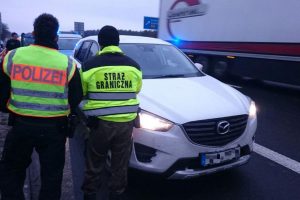Research Question
What role(s) do border officials play in the enforcement and management of border control and border mobilities and how do these roles relate to the personal, organizational and larger societal context within which these officials operate?
Project Description

Border control officers are of vital importance in the decision-making process when it comes to who belongs and can, consequently, cross the border, and who does not, thereby continuously differentiating ‘insiders’ from ‘outsiders’. In recent years a growing body of scholarship has emerged that points to the ubiquitous nature of modern migration policing. However, there has been surprisingly little attention for the actual enforcement of migration policing on the ground, whereas such knowledge is vital to understanding certain local and national practices, perspectives and sentiments. The project aims to facilitate a deeper understanding of the discretion available to and used by street-level border officers operating in intra-Schengen border regions. It will do so by examining the assumptions, views and interpretations underlying their decisions as well as their and the public's perceptions of the dominant border regime and the decisions being made as part of it. By analyzing the topic of decision-making and discretion in the larger context of ambiguous policy frameworks, existing organizational culture, and a rapidly changing and politicized legal and social context of migration, this project will address the interconnectedness and multi-directionality of impact between concepts such as security, national vs. individual identity, belonging, and sovereignty.
The research will apply a qualitative and bottom-up research strategy in which observations, interviews and a (discourse) analysis of legal and policy documents will be combined. Focusing predominantly on the micro level of state border control and policy implementation (street-level border police officers), the project will gather data on, and analyze the process of (and behind) the decision-making of individual border guards, contextualizing ethnographic and empirical findings in the specifics of the national, local, and organizational culture.


